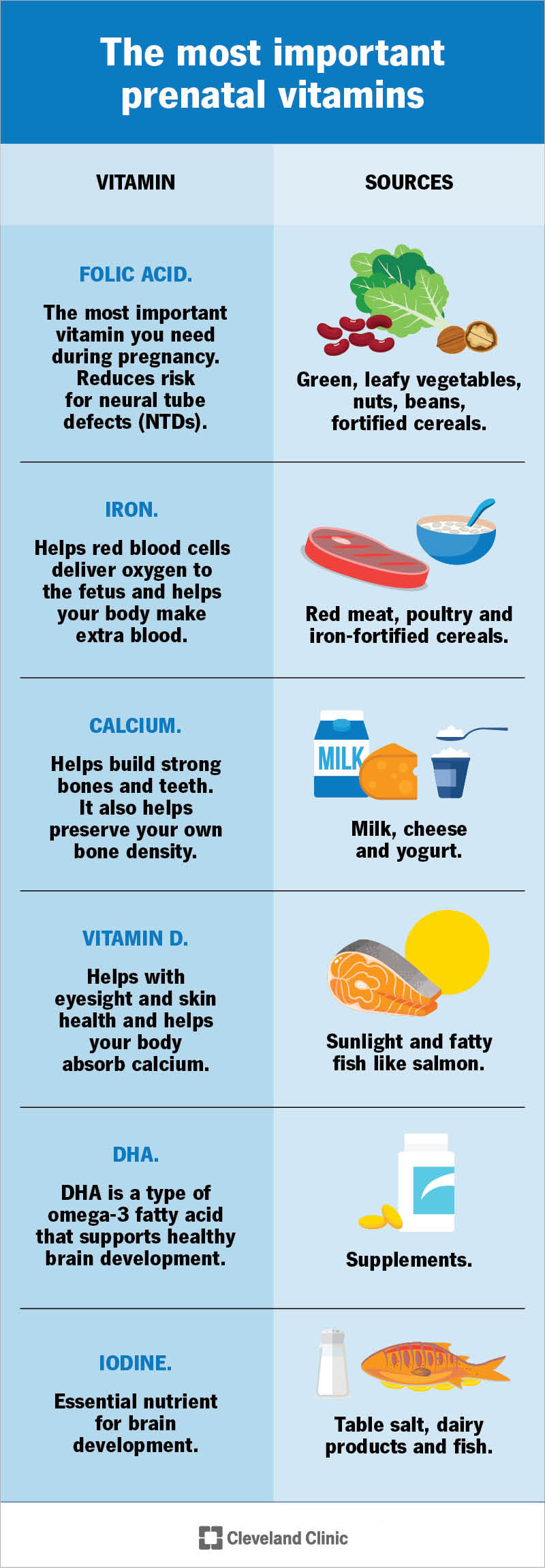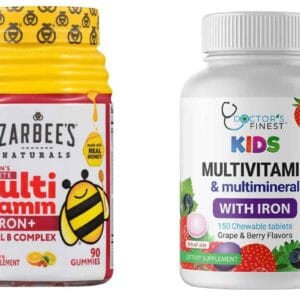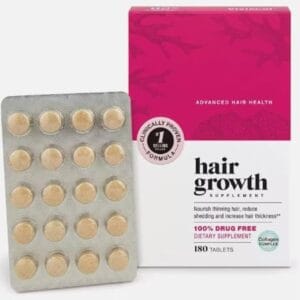Expecting a baby is an exciting time, and proper nutrition is crucial for a healthy pregnancy. A well-balanced diet provides essential nutrients, but sometimes it can be challenging to get everything needed from food alone. That’s where pregnancy multivitamins come in – supplements designed to fill nutritional gaps and support the health of both mother and baby. Understanding the key components of pregnancy multivitamins is vital to making informed choices. Knowing the essentials can help ensure a healthy pregnancy, supporting fetal development and maternal well-being throughout this critical period.

Pregnancy Multivitamin Essentials: What You Need to Know
When it comes to pregnancy, it’s essential to ensure that you’re getting the right nutrients to support your health and the development of your baby. A well-balanced diet is crucial, but sometimes it can be challenging to get all the necessary vitamins and minerals from food alone. That’s where pregnancy multivitamins come in. These supplements can help fill any nutritional gaps and support a healthy pregnancy.
The Importance of Folic Acid
Folic acid is a critical nutrient during pregnancy, particularly in the early stages. It helps prevent birth defects of the brain and spine, such as Neural Tube Defects (NTDs). The recommended daily intake of folic acid during pregnancy is 600-800 micrograms. Foods rich in folic acid include leafy greens, legumes, and fortified cereals. However, it’s often difficult to get enough folic acid from diet alone, making supplementation crucial. | Food Sources | Folic Acid Content (mcg) | | — | — | | Spinach (1 cup cooked) | 262 | | Black beans (1 cup cooked) | 256 | | Fortified cereal (1 serving) | 100-400 |
The Role of Iron
Iron is another vital nutrient during pregnancy, as it supports the production of red blood cells and helps prevent anemia. The demand for iron increases during pregnancy, and deficiency can lead to fatigue, weakness, and other complications. Pregnant women should aim for 27 milligrams of iron per day. | Iron-Rich Foods | Iron Content (mg) | | — | — | | Red meat (3 oz cooked) | 3-5 | | Spinach (1 cup cooked) | 4-5 | | Fortified cereal (1 serving) | 10-18 |
Calcium and Vitamin D for Bone Health
Calcium and Vitamin D are essential for maintaining strong bones and teeth. During pregnancy, calcium supports the development of the baby’s skeleton, while vitamin D helps with calcium absorption. Pregnant women should aim for 1,000 milligrams of calcium and 600 IU of vitamin D per day. | Calcium-Rich Foods | Calcium Content (mg) | | — | — | | Milk (1 cup) | 300 | | Greek yogurt (1 cup) | 200-300 | | Fortified plant-based milk (1 cup) | 300-400 |
Omega-3 Fatty Acids for Fetal Development
Omega-3 fatty acids, particularly DHA, play a crucial role in fetal brain and eye development. Pregnant women should aim for 200-300 milligrams of DHA per day. Fatty fish, nuts, and seeds are rich in omega-3s, but supplements can help ensure adequate intake. | Omega-3 Rich Foods | DHA Content (mg) | | — | — | | Salmon (3 oz cooked) | 1,800 | | Walnuts (1 oz) | 100-150 | | Chia seeds (1 oz) | 4,900 |
Choosing the Right Pregnancy Multivitamin
When selecting a pregnancy multivitamin, look for a product that contains the essential nutrients mentioned above, including folic acid, iron, calcium, vitamin D, and omega-3 fatty acids. Always consult with your healthcare provider before starting any supplement regimen to ensure you’re getting the right nutrients for a healthy pregnancy.
| Nutrient | Recommended Daily Intake |
|---|---|
| Folic Acid | 600-800 micrograms |
| Iron | 27 milligrams |
| Calcium | 1,000 milligrams |
| Vitamin D | 600 IU |
| Omega-3 (DHA) | 200-300 milligrams |
What are the must-haves in prenatal vitamins?
Prenatal vitamins are dietary supplements designed to provide essential nutrients to pregnant women or those planning to conceive. The must-haves in prenatal vitamins include a range of vital nutrients that support fetal development, maternal health, and preparation for a healthy pregnancy.
Essential Nutrients for Fetal Development
Prenatal vitamins contain crucial elements that directly support the growth and development of the fetus. These nutrients are vital for preventing birth defects and ensuring the baby’s overall health. The key components include:
- Folic Acid: crucial for preventing neural tube defects in the baby, such as spina bifida.
- Iron: essential for the production of red blood cells in both the mother and the fetus.
- Calcium: necessary for fetal bone development and maternal bone health.
Supporting Maternal Health
In addition to supporting fetal development, prenatal vitamins also play a significant role in maintaining the health and well-being of the mother. They help to fill any nutritional gaps in the mother’s diet, ensuring she remains healthy throughout the pregnancy. Key nutrients for maternal health include:
- Omega-3 Fatty Acids: particularly DHA, which supports heart health and may also contribute to fetal brain development.
- Vitamin D: important for bone health and immune function in both the mother and the fetus.
- Zinc: supports immune function and is involved in numerous aspects of cellular metabolism.
Preconception and Pregnancy Preparation
For women planning to conceive, prenatal vitamins can help prepare the body for pregnancy by ensuring adequate stores of essential nutrients. This preconception care is crucial for a healthy pregnancy and can help reduce the risk of complications. Important nutrients for preconception and pregnancy preparation include:
- Antioxidants: such as vitamins C and E, which help protect cells from damage.
- B Vitamins: including B6 and B12, which are important for energy production and nerve function.
- Iodine: essential for thyroid function and fetal brain development.
What is the recommendation for the need for multivitamin supplements during pregnancy?

The recommendation for the need for multivitamin supplements during pregnancy varies depending on several factors, including the woman’s dietary habits, health status, and stage of pregnancy. Generally, a well-balanced diet that includes a variety of whole foods can provide adequate nutrients for a healthy pregnancy. However, multivitamin supplements can help fill any nutritional gaps and support fetal development.
Nutritional Needs During Pregnancy
During pregnancy, a woman’s body requires additional nutrients to support the growth and development of the fetus. Folic acid, iron, and calcium are particularly important for preventing birth defects and ensuring the health of both mother and baby. A multivitamin supplement can help meet these increased nutritional needs, especially for women who have a restricted diet or are at risk of nutrient deficiencies.
Some key nutrients that are often supplemented during pregnancy include:
- Folic acid to prevent neural tube defects
- Iron to support the production of red blood cells
- Calcium to promote fetal bone development
Benefits of Multivitamin Supplements
Multivitamin supplements can provide several benefits during pregnancy, including reducing the risk of birth defects, supporting fetal development, and promoting overall maternal health. Prenatal multivitamins typically contain a broad range of essential vitamins and minerals. Taking a multivitamin supplement can be particularly beneficial for women who are at risk of nutrient deficiencies or have a history of poor dietary habits.
Some benefits of multivitamin supplements during pregnancy include:
- Reducing the risk of neural tube defects and other birth defects
- Supporting fetal development and growth
- Promoting overall maternal health and well-being
Choosing a Multivitamin Supplement
When choosing a multivitamin supplement during pregnancy, it is essential to select a product that is specifically formulated for pregnant women and contains the necessary nutrients in safe and effective amounts. Prenatal multivitamins are designed to meet the unique nutritional needs of pregnant women. Women should consult their healthcare provider before taking any supplement to ensure it is safe and suitable for their individual needs.
Some factors to consider when choosing a multivitamin supplement include:
- The presence of essential nutrients like folic acid, iron, and calcium
- The product’s safety record and potential interactions with other medications
- The manufacturer’s reputation and adherence to good manufacturing practices
What multivitamins should I take when pregnant?
When pregnant, it’s essential to take multivitamins that cater to the specific nutritional needs of the mother and the developing fetus. The primary goal is to support the health and development of both, ensuring a healthy pregnancy and minimizing the risk of complications.
Nutrients to Look for in a Prenatal Multivitamin
A prenatal multivitamin should contain essential nutrients that are crucial for fetal development and maternal health. These nutrients include folic acid, iron, calcium, vitamin D, and omega-3 fatty acids. The right balance of these nutrients can help prevent birth defects, support the mother’s overall health, and ensure the fetus develops properly.
Some key components to look for include:
- Folic acid to prevent neural tube defects
- Iron to support the mother’s increased blood volume and prevent anemia
- Calcium for fetal bone development
Considerations for Choosing a Prenatal Multivitamin
When selecting a prenatal multivitamin, it’s crucial to consider several factors, including the formulation, dosage, and potential allergens or irritants. The chosen multivitamin should be safe and effective, providing the necessary nutrients without causing adverse reactions.
Some factors to consider include:
- The presence of artificial additives or allergens that could cause adverse reactions
- The dosage and whether it aligns with the recommended daily intake
- Certifications from reputable third-party organizations that ensure the product’s quality
Consulting a Healthcare Provider
Before starting any prenatal multivitamin regimen, it’s vital to consult with a healthcare provider. They can provide personalized recommendations based on the individual’s health status, dietary habits, and specific needs during pregnancy.
Some benefits of consulting a healthcare provider include:
- Getting personalized advice tailored to individual needs
- Ensuring the chosen multivitamin is safe and compatible with any existing health conditions
- Receiving guidance on how to integrate the multivitamin into a daily routine
What vitamins are most important during pregnancy?
During pregnancy, a woman’s body undergoes significant changes to support the growth and development of the fetus. A well-balanced diet rich in essential nutrients is crucial to ensure a healthy pregnancy. Among these nutrients, certain vitamins play a vital role in supporting fetal development and maternal health.
Essential Vitamins for Fetal Development
The fetus relies on the mother’s nutrient stores for its growth and development. Vitamins such as folic acid, iron, and calcium are crucial for preventing birth defects and supporting the baby’s overall development. A deficiency in these vitamins can lead to complications during pregnancy.
- Folic acid is crucial for preventing neural tube defects, such as spina bifida.
- Iron is essential for the production of red blood cells and preventing anemia.
- Calcium supports the development of the baby’s bones, teeth, and muscles.
Vitamins for Maternal Health
Pregnancy can be a physically demanding experience, and a woman’s body requires additional nutrients to support her health. Vitamins like vitamin D, omega-3 fatty acids, and vitamin B12 are important for maintaining the mother’s overall health and well-being.
- Vitamin D is necessary for calcium absorption and bone health.
- Omega-3 fatty acids support heart health and fetal brain development.
- Vitamin B12 plays a crucial role in the production of red blood cells and nerve function.
Recommended Dietary Intake
A well-balanced diet that includes a variety of whole foods can provide the necessary vitamins and nutrients for a healthy pregnancy. Pregnant women should focus on consuming leafy greens, nuts and seeds, and fatty fish to meet their nutritional needs.
- Leafy greens are rich in folic acid and iron.
- Nuts and seeds are a good source of healthy fats and vitamin E.
- Fatty fish are rich in omega-3 fatty acids and vitamin D.
Frequently Asked Questions
What are the essential nutrients in a pregnancy multivitamin?
A pregnancy multivitamin should contain folic acid, iron, and calcium as these are crucial for the development of the fetus and the health of the mother. Folic acid helps prevent birth defects of the baby’s brain and spine, while iron is vital for the production of red blood cells. Calcium supports the development of the baby’s bones, teeth, and muscles. Other essential nutrients include vitamin D, omega-3 fatty acids, and iodine, which support overall health and development.
Why is folic acid important during pregnancy?
Folic acid is crucial during pregnancy as it prevents neural tube defects (NTDs), such as spina bifida and anencephaly, in the developing fetus. The neural tube forms early in pregnancy, often before a woman knows she is pregnant, making it essential to have adequate folic acid levels from the start. The recommended daily intake of folic acid is 400 to 800 micrograms for pregnant women, and it is often included in prenatal multivitamins.
Can I get all the necessary nutrients from food alone during pregnancy?
While a well-balanced diet is essential during pregnancy, it can be challenging to get all the necessary nutrients from food alone. Pregnancy multivitamins help fill any nutritional gaps, ensuring that the mother and fetus receive the necessary vitamins and minerals. Certain nutrients, like folic acid and iron, are difficult to obtain in sufficient amounts through diet alone, making supplements a valuable addition to a pregnant woman’s daily routine.
How do I choose the right pregnancy multivitamin?
When choosing a pregnancy multivitamin, look for a product that contains the essential nutrients mentioned earlier, including folic acid, iron, calcium, and vitamin D. Consider a product that is specifically formulated for pregnancy and has been tested for quality and purity. Always consult with a healthcare provider before starting any supplement regimen to ensure it meets your individual needs and health status.















